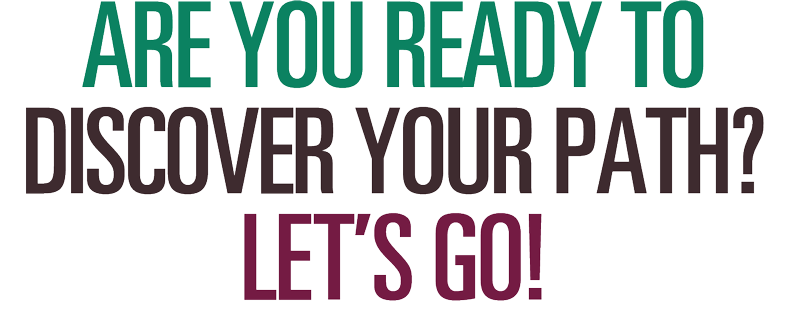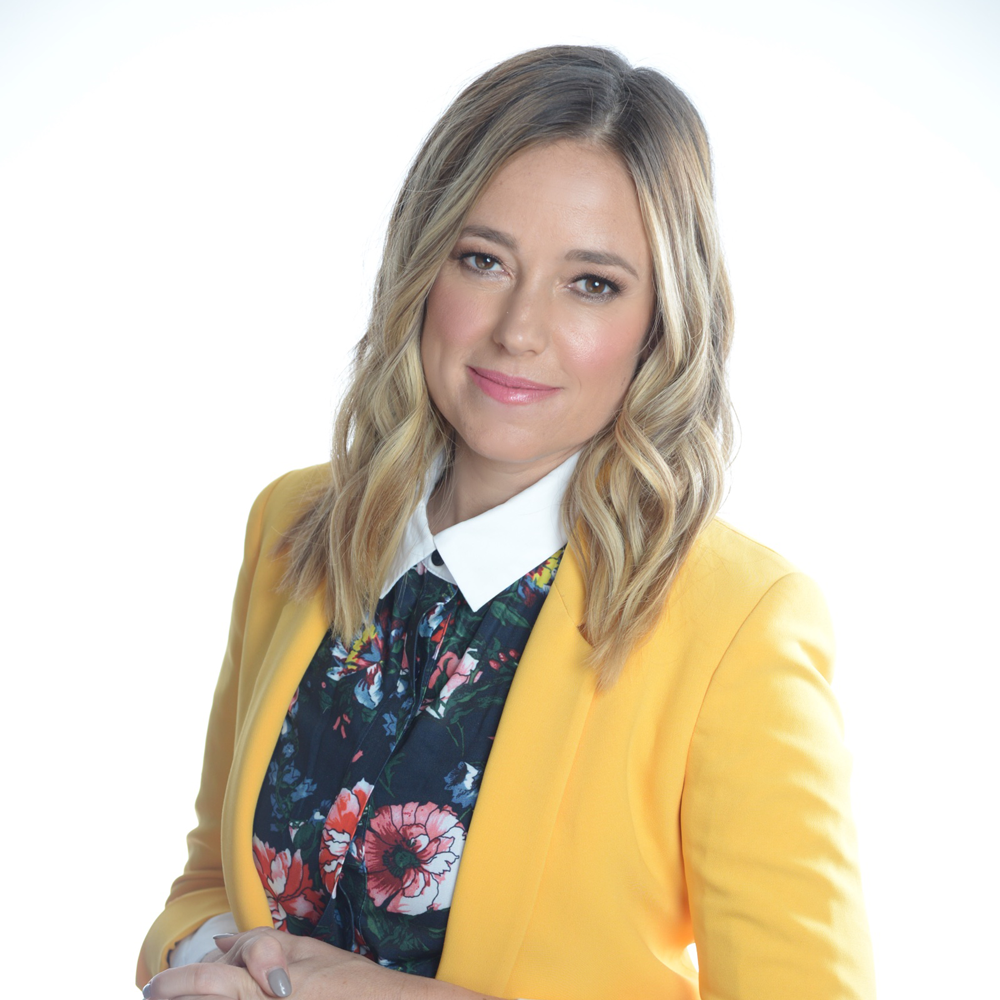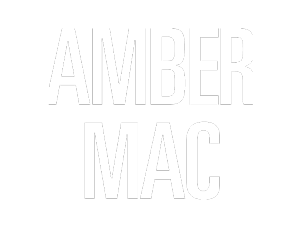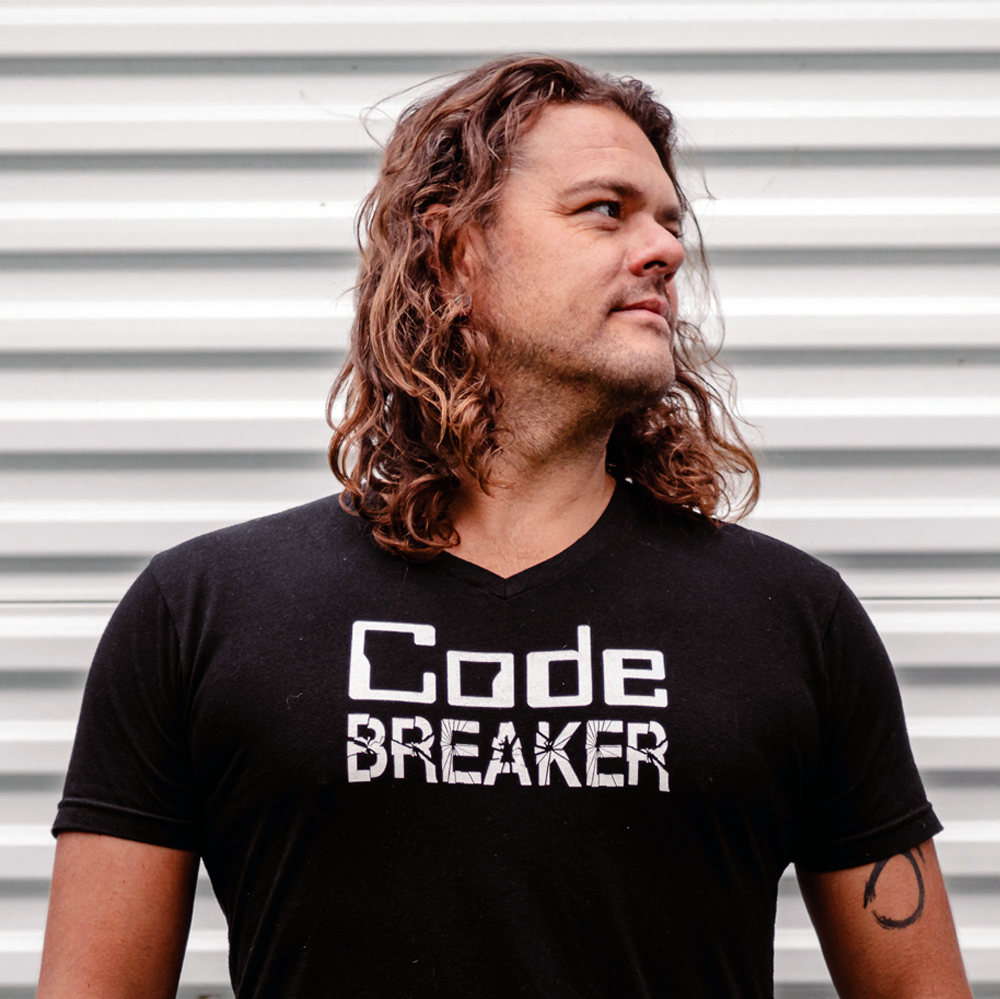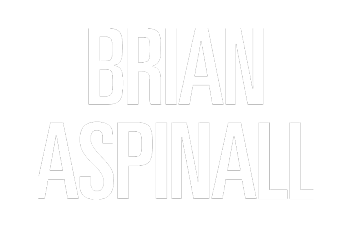Highlights
Highlights
Schedule / Thursday, May 11
* denotes session awaiting confirmation
Registration Opens
ALC Opening Titles and Address / 25 minutes
Opening Keynote / 60 minutes
Relentless Adaptation: Three tech trends accelerating in 2023 and lessons to thrive
Amber Mac / This interactive presentation explores how rapid digitization is essential in all sectors in this new world of accelerating automation.
Coffee Break / 20 minutes
Breakout / 50 minutes
Empowering Educators? What we may want to consider when Constructing Tech Enabled Professional Learning
Conestoga College / Tech-enabled professional learning takes many forms and can vary widely from organization to organization. There have been massive changes over the past several years to how we organize, provide and support tech-enabled professional learning, and this session will be an opportunity to share and learn together. We'll consider academic research on ideal tech-enabled professional learning and explore what gaps exist in the research and how they might be addressed. While the facilitators will share examples from their professional experiences, the session will provide opportunities to discuss, share examples, and strategize through pain points.In this session, we will: summarize research on tech-enabled professional learning and its current limitations; discuss examples of tech-enabled professional learning at our organizations; share possible strategies to enhance learning experiences. This session is aimed toward faculty developers, technology specialists, and organizational change agents who want to incorporate evidence into the learning experiences they provide. It aims to help us add to the supports we provide faculty in meaningful ways that reflect the growing technological world around us.
Breakout / 50 minutes
Building Awareness of Open Education in Ontario Colleges Through Collaboration
Loyalist College, Conestoga College, Centennial College, Fanshawe College / The prevalence of open education in the Canadian post-secondary education sector is growing, however institutional faculty practice remains concentrated within small groups of passionate educators. While many institutions are using Open Educational Resources (OER) and engaging in OER practice, educators are still unaware of the support and resources available to them. According to a spring 2022 Special Topics Research Brief by the Canadian Digital Learning Research Association, the majority of respondents stated their institution encouraged the use of OER and they strongly believed this trend would continue in the future. However, two thirds of participants stated faculty are unfamiliar with OER resources available to them. While the benefits of integrating open educational resources into teaching practice are well-known, many educators need help to get started. In this session, panelists will share examples of open education projects at their institutions, and the approaches each institution is taking to support open work. As well, ideas will be shared on how to build support, resources and awareness among Ontario College faculty through provincial collaboration and sharing.
Breakout / 50 minutes
Academic Success Strategies in a Virtual Environment: Quickly build interactive components within your LMS
Durham College / Have you ever wanted to improve durable learning by incorporating the science of learning into your courses? Do you wish there were more free and customizable interactive tools available to use within your Learning Management System (LMS)? Academic Success Strategies in a Virtual Environment aligns principles rooted in the science of learning with the new Durham College developed interactive learning tools, available for free to all post-secondary institutions under a CC BY-SA 4.0 license. These tools create interactive components that can be easily added to any LMS and customized for student practice. In this session, you will learn all about these interactive learning tools and how to use them. You will leave this session with an LMS template, customizable interactive tools to incorporate the science of learning, and knowledge about how this all comes together to support improved learning.
Breakout / 50 minutes
Academic Integrity in Cyberspace
Toronto Metropolitan University / The unexpected and sudden pivot to remote teaching and learning in institutions of higher education highlighted many areas of vulnerability regarding academic integrity, magnifying both traditional and novel forms of academic misconduct. As remote or hybrid platforms of education persist, these associated forms of academic misconduct remain a challenge for faculty and students alike. With the assistance of a Virtual Learning Strategy grant from eCampus Ontario, Seneca College and Toronto Metropolitan University have developed gamified academic integrity modules for students, designed specifically to promote academic integrity (including best academic practices, ethical decision-making, use of student supports/resources) in scenarios common to students in the virtual learning environment. The modules are relevant to both college and university students, with the code for the game freely available under a Creative Commons License. This presentation will describe the development of the game, as well provide a demonstration and opportunity for participants to play the game. Presenters will also demonstrate how these modules can be adapted for use by other institutions.
Breakout / 50 minutes
Building Student Podcasts: An Introduction to the Technology and Strategies for Success (Humanizing Technology with Student Voice and Choice)
Toronto District School Board / In this session, educators will learn the basics of podcasting technology and how to implement podcasting in the classroom effectively. Through hands-on activities coupled with templates, google slides and how-to videos, along with real-student examples, participants will gain the knowledge and skills needed to allow students to create engaging and meaningful podcasts. This session is designed for educators of all experience levels looking to incorporate podcasting into their curriculum and empower their students to use technology for self-expression, amplify and elevate student's voices and lived experiences along with communication and multi-media creation.
Breakout / 50 minutes
Draw Students In by Letting Them Go
George Brown College / Have you ever watched a movie on your phone, or picked up a coffee in a drive-thru, or learned how to repair something from YouTube? We like to make choices for ourselves and have the flexibility to customize our experiences in ways that suit our individual needs. It’s this individualized service that brings us back for more. It is not surprising then to hear that students are asking for the same choice and flexibility when it comes to their learning. In this session, we will explore a new, UDL informed, online course that asks students to choose what they want to learn, how they want to learn about it, and how they want to demonstrate their learning. This third year, final semester Digital Marketing course empowers students to make meaningful choices in the hopes that they can find their voice and in turn, produce a digital project that will help them to stand out in a sea of similar grads. After years of online courses riddled with fatigue, disconnection, and disinterest, it is refreshing to hear students said things like they were “learning for me”, “meeting my standards”, and were “accountable for my own learning”.
Lunch / 60 minutes
Afternoon Keynote / 50 minutes
Artificial Intelligence in Higher Education Panel
Moderated by Dr. Jean Choi / Join us for a panel discussing the opportunities and challenges of generative artificial intelligence in higher education. Panelists, Dr. Uzair Ahmad (Durham College), Dr. Erin Aspenlieder (McMaster University), Dr. Jennie Miron (Humber College), and Amanda Maknyik (Durham College), will share their perspectives and insights the impact of artificial intelligence in higher education. The audience will have the opportunity to engage with the panelists during a Q&A session to further explore the potential of generative AI in higher education and the challenges that need to be addressed to ensure its responsible implementation. Panelists: Dr. Uzair Ahmad is esteemed faculty member at Durham College, specializing in AI/ML-related courses, and collaborates with industry partners in the field of AI. Dr. Erin Aspenlieder is an Associate Director at the Paul. R MacPherson Institute for Leadership, Innovation and Excellence in Teaching at McMaster University, supporting McMaster’s institutional efforts in understanding and responding to the challenges and opportunities of generative artificial intelligence for teaching and learning. Dr. Jennie Miron is an Academic Integrity Lead in the Faculty of Health Sciences & Wellness at Humber College, she is the chair of the International Centre for Academic Integrity (ICAI) Canada, and supports various Academic Integrity focused councils. Amanda Maknyik is the Associate Dean of Teaching, Learning and Program Quality in the Centre for Teaching & Learning at Durham College, and is a passionate advocate for authentic assessment and developing positive, remedial culture of academic integrity.
Breakout / 50 minutes
Think About Future YOU When It Comes To Course Design
Mohawk College / Let’s explore changes that can be implemented to your course design to improve learner experiences. This workshop will focus on leveraging the learning management system to enhance module organization and improve learner interaction and navigation of course materials. A checklist resource will be provided. The following topics will be covered: Using a consistent design and structure in modules; Thinking for formative assessments; Planning video creation; Creating a plan for longevity of content.
Track 2 / Explore
Breakout / 50 minutes
Building Real-World Knowledge and Skills through Authentic Assessments
D2L / In this presentation, participants will learn about the value of authentic assessments and its role in developing relevant skills and knowledge for learners’ success beyond the classroom. Authentic assessment allows learners to acquire and demonstrate an understanding of course content in ways that reflect how that knowledge will be used in the real world. We’ll discuss four types of integrated teaching and learning (inquiry-, problem-, project-, and scenario-based learning) that contribute to authentic assessment and evaluate the needs of your learners to replicate the context and real-world complexities within their assessments. With this alternative approach to teaching and learning comes a shift in the role of the facilitator/instructor. As we explore a variety of examples of authentic assessments from different domains to spark ideas for your own courses, we’ll highlight the time and effort required of the facilitator or instructor, so you can maximize your time for iterations in the most impactful ways. Finally, we’ll establish practices and strategies for adapting your current assessments for more applied demonstrations of learning. You’ll leave this session ready to update your teaching and assessment materials so you can evaluate learning in more meaningful and authentic ways.
Breakout / 50 minutes
Reinventing general education: Empowering students with UDL
Durham College / When we re-designed our introductory psychology course to be delivered online asynchronously (pre-pandemic), we consciously considered the Universal Design for Learning (UDL) framework in guiding our decisions. UDL is composed of three principles which help us to design our courses to support all students and make learning accessible to everyone (CAST, 2018). All three of these principles (multiple means of representation; multiple means of action and expression; multiple means of engagement) are important and embedded throughout our course. Session attendees will be shown how we engage students in this redesigned course through gamified elements (including badges, personalized feedback, and targeted positive communication) as well as weaving UDL throughout the course by providing students with flexibility and choice to increase their ownership of the learning process. We also solicited feedback from our students every semester through a stop-start-continue activity and the feedback we have received thus far has been spectacular and many identify some of the elements we have described as reasons that they enjoy the course. Some of these data will also be shared.
Breakout / 50 minutes
Redefining Flexibility at Seneca College: Early data from an Investigation into the Student Experience of Flexible Courses
Seneca College / As part of its response to the post-pandemic needs of learners, Seneca began offering increased choice in course delivery modes. In the fall of 2021, the college introduced hybrid-flexible courses, referred to as “Flex,” as an option for students. The Flex approach combines classroom instruction with synchronous and asynchronous online routes, affording students the flexibility to co-construct their learning environment and demonstrate their learning in a way that works for them. In this session, we will share the story of Seneca’s early commitment to Flex with illustrative examples from faculty and leaders. We will then share preliminary data from research examining Flex courses for a) the degree of student satisfaction, b) factors influencing their decisions to take a Flex course and c) aspects of Flex teaching which the students felt helped or hindered their learning. Last, we will facilitate a discussion on which aspects of Flex courses appear to be the most beneficial for our students, and how to support faculty in learning from accumulating best practices. We will also discuss the challenges our students face in these courses, so that faculty can work to mitigate these issues with the goal of best meeting students’ needs.
Breakout / 50 minutes
Become an OER Curation Champion with Ontario Extend!
eCampusOntario / The Ontario Extend program provides just-in-time learning to enhance digital fluency and teaching with technology skills. The program and growing Community of Practice of over 1,200 educators provides foundational upskilling and reskilling opportunities that empower faculty to conquer challenges in the evolving tech-enabled teaching and learning landscape. Finding good quality open educational resources to create a more equitable and accessible learning environment for students is one of those challenges and is addressed within the Curator module. Join us for an interactive workshop where you will learn how the Ontario Extend program can help you solve some of your own tech-enabled teaching and learning challenges. You will leverage the eCampusOntario Open Library to find Open Educational Resources (OER) and explore the world of Creative Commons licensing. By the end of the session, you will be well on your way to completing the Curator module!
Breakout / 50 minutes
Adaptive Learning Technologies in Ontario's Postsecondary Sector
eCampusOntario / Adaptive Learning (AL) technologies create the opportunity to customize education at scale to meet the needs of individual learners. These platforms use artificial intelligence and algorithms to provide content, testing and feedback to learners that identifies gaps in their knowledge, challenges them at an appropriate level, and redirects them to new topics when they are ready. eCampusOntario has completed two pilot studies and a comprehensive environmental scan to advance research on the use of AL in Ontario's postsecondary sector. From this work, we have gained insight into the current use and application of AL in postsecondary education, in addition to identifying strategies that can support scaling across the sector. During this presentation we will examine the findings from the environmental scan, highlight examples of AL platforms in use across the sector and discuss practical strategies to seamlessly integrate these emerging technologies into their practice.
Extended Break / 60 minutes
ALC Dinner and Social / 120 minutes
Highlights
Schedule / Friday, May 12
* denotes session awaiting confirmation
Registration Opens
ALC Opening Titles and Address / 15 minutes
Opening Keynote / 75 minutes
Hacking the Classroom
Brian Aspinall / Brian is an elementary teacher and university instructor on a mission to expose as many students as he can to coding and computer science. In this passionate talk, he makes a case for the importance of exposing students to the principles of coding and computational thinking to prepare them for their rapidly changing future.
Coffee Break / 20 minutes
Breakout / 50 minutes
Get to know our ALC Sponsors
ALC Sponsors / Learn about our exhibitors and how they can help support your teaching and learning practices.
Breakout / 50 minutes
Tech tools to support student learning: Reinventing some aspects of the post-pandemic classroom
Durham College / Prior to the pandemic, technology in the classroom was ubiquitous and through the pandemic it became essential. Many educators across the province had to re-invent their lesson deliveries to mitigate the risk of in-person interactions while still providing quality education for their students. Technology has been, and will continue to be, embraced in the higher education classroom. However, not all technological tools are beneficial to learning, so instructors need to evaluate their choices and ensure that pedagogy is central in their decision. In this session, we will briefly explain one model that instructors can use to evaluate a new (potential) technological tool to ensure they serve their purposes. Then, we will share some of the evidence-based practices and techniques which have been shown to support successful student learning. Finally, we end with some specific tool suggestions and how they support student learning. Attendees will be able to try out several technologies during this session.
Breakout / 50 minutes
Integrating Data Science to Social Science
University of Toronto / I can share my experience of integrating coding/analytics into a social science curriculum (e.g., for finance, accounting, and management students). I can share my teaching strategies (in-person and online) and assessments used to introduce and to build a foundation in a non-intimidating manner through community. I have applied and developed teaching strategies for the following four (4) courses (i.e., Coding for Business, Data Analytics for Management, Coding and Data Management for Business Analytics, and Research Opportunity Program - Experiential Education). These courses rely on the JupyterHub platform as the teaching and learning platform. This platform was used in both delivery formats (i.e., online and in-person) during class and in the lab tutorials. The platform was also used for assignments, tests, and exams. The platform provides an intuitive environment to introduce coding to our accounting, finance, and management students that emulates roles in the new economy built on data and algorithms. Integrating the JupyterHub platform immediately familiarizes the class with an industry de-facto standard in data science. This will bridge the gap between the undergraduate setting and the workplace. In addition to what was mentioned above, students will appreciate the art side (i.e., recognizing patterns in data, considering what questions to ask, and determining which algorithms work best) and the engineering side to Data Science (i.e., following particular steps in the preparation, analysis, and presentation of the data).
Breakout / 50 minutes
PBL for EDI: Authentic Assessment in a Educational Technology Course
Tyndale University / This session depicts and describes how Points, Badges and a Leaderboard (PBL) were used in a gamified course designed for a teacher education program, in ways that promote equity, diversity and inclusion, thereby encouraging authentic assessment of students’ knowledge and skills. The story of how PBL was set up to measure student learning in a course about educational technology will be told. Then, products that the students in this course created to earn PBLs will be shared. These products demonstrate students’ achievement of the course learning goals, including the development of skill in using a variety of digital tools, and reflecting critically upon the value of digital technology for learning. Examples of students’ feedback about this course’s assessment methods will be shared, including their perceptions and beliefs about the value of using PBL as an assessment tool, for their own learning, and the learning of their future students. Links between PBL and EDI will be shared, illustrating for attendees how XP or points can be used to assess knowledge and skill, and to facilitate equity; how the earning of Badges can be used to measure skill development and to celebrate diversity; and how the design of a Leaderboard can promote self-assessment and foster inclusion.
Breakout / 50 minutes
International virtual exchanges as a high impact practice
Georgian College / International virtual exchange leverages the internet and technology to connect students and faculty from different cultures and countries while preparing students for the global workplace. While IVE has been around for several years, the pandemic has really brought to light the opportunities for faculty to internationalize their curriculum without mobility thereby removing barriers to both education and globalized experiential learning activities. As a high impact practice, international virtual exchanges are not intended to replace in-person experiences of traditional exchanges but to provide intrigue and interest as well it offers accessibility for those students, especially underrepresented student groups, who may not have the means to travel abroad to another country for an in person international learning experience. Delivery adaptation to support IVE offers learning and education for both faculty and students. This interactive workshop will explore how IVE can foster culturally responsive reciprocated learning opportunities that are accessible and equitable for all students and support globalization and intercultural learning outcomes.
Breakout / 50 minutes
Thinking About Assessment for Online Courses? Think Again!
Seneca College / The post-secondary sector is undergoing dramatic shifts in how students experience education. The recent pandemic coupled with increasingly globalized classrooms have accelerated mainstream adoption of online learning modalities. Institutions have increasingly turned to flexible delivery modes that allow students to choose between in-person and remote instruction. Competency-based microcredentials have emerged as solutions to increased demands for reskilling and upskilling within the labour force. In addition, new language generators powered by artificial intelligence can produce written compositions in a variety of styles. Now more than ever, higher education is being asked to reflect on the ability of traditional assessment methods, such as exams and written essays, to measure student achievement of career-relevant learning outcomes equitably and effectively. In this presentation, we highlight the resources and strategies Seneca’s Teaching and Learning Centre have developed to support faculty in rethinking assessment strategies in the context of this changing educational landscape. In particular, we will showcase the Ontario VLS-funded, bilingual open resource, “Rethinking Assessment Strategies for Online Learning: a short-course for post-secondary educators”, developed in partnership with Durham and Algonquin Colleges and the University of Ottawa. We discuss how this resource is being used at Seneca, along with our efforts to build a collection of authentic and alternative assessment exemplars.
Lunch / 60 minutes
Breakout / 50 minutes
Using Strategic Foresight to Explore the Future of Educational Technology
eCampusOntario / The future is often presented as if it is pre-determined and can be predicted. However, the practice of Foresight does not predict. Rather, we assume the future is dependent on the choices that are made today and that many different futures might be possible. The intention of Foresight is to use the information or evidence of change in the present to extrapolate what is possible in the future, by understanding the bigger picture and the greater context to inform decision making today. In this workshop participants will be introduced to Foresight by eCampusOntario’s Research and Foresight team. Participants will have the chance to explore trends (evidence of change sustained over a period of time) within the post-secondary education sector. These trends have been synthesized in eCampusOntario’s Foresight Reports, available here. Trends related to educational technology, tech-infused pedagogy, and technology enabled learning will be the basis for the workshop. Participants will be guided through a methodology to explore possibilities of the future of educational technology, by confronting current assumptions about EdTech and technology enabled learning. Participants will be challenged to be, and given the tools to be, the designers of educational technology that will serve future learners and educators.
Breakout / 50 minutes
Opening Up Math: Creating and Curating OER for College Math Courses
Seneca College / Seneca College is exploring the use of open educational resources (OER) in course offerings. Math courses seem to be particularly suited because of the large number of mathematics-related OER available. Join us as we describe the journey we are on to integrate OER in the math curriculum, the challenges and exhilarations, the whys and wherefores, and our creation and curation story. And, of course, in the spirit of OER, we will share all our resources, and invite everyone to build upon them.
Breakout / 50 minutes
Immersive Technology Panel
Moderated by Tanya Wakelin / Join us for a panel discussion on the potential and barriers of immersive technology in higher education. Our panelists, Rob Theriault, Dr. Lisa Trimble, and Linda Facchini will share their insights and explore the latest advancements in virtual and augmented reality in higher education. Whether you are an educator, administration, support faculty, or simply curious about the future of education, this panel is for you. Panelists: Rob Theriault is the Immersive Technology Manager at Georgian College’s Centre for Teaching and Learning; Dr. Lisa Trimble is DLX Pedagogy and Process Quality Manager at Conestoga College; and Linda Facchini is the Professor, Faculty Development at Seneca College.
Workshop / 50 minutes
Code Breaker: Artificial Intelligence, Disrupting the Status Quo
Brian Aspinall & Daphne McMenemy / This interactive hands-on workshop is presented by Code Breaker, who focus on disrupting the status quo and challenging social norms in education. Brian and Daphne will energize you and pose challenging questions for educators and administrators to reflect on our systematic beliefs in higher education. This workshop will create space to learn about (and try!) generative artificial intelligence in the field of education. As part of their mission, Code Breaker encourages educators to explore, be creative, learn, and provide opportunities for invention with their students. Bring your best questions and let's explore artificial intelligence and the 21st century world of work together! You will leave this energetic session considering questions around pedagogy, technology, and higher education. Closing the Advancing Learning Conference with thought-provoking questions on the future.

